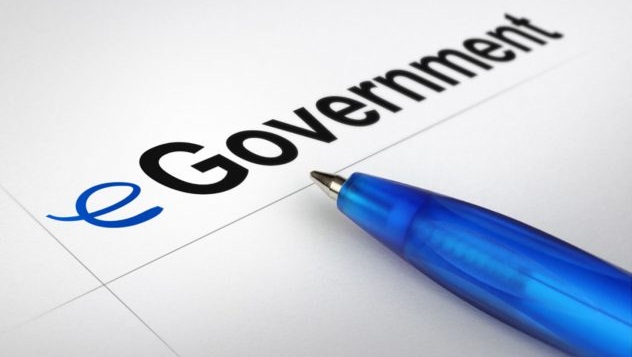E-Government: Embracing Technology in Governance in Indonesia — A Real-World Look
JAKARTA, turkeconom.com – E-Government: Embracing Technology in Governance in Indonesia is honestly a game-changer—seriously, it’s reshaping how our public services work. I’ve seen the changes first-hand; from paying taxes online to checking official documents with just a few taps, the convenience is unreal. But real talk, getting here wasn’t always smooth sailing.
What Is E-Government and Why Does It Matter?

In today’s digital age, E-Government has become a buzzword in modern governance. But what does it actually mean? At its core, E-Government refers to the use of information and communication technology (ICT) to improve the delivery of government services, promote transparency, and enhance citizen engagement.
For Indonesia, a country with over 17,000 islands and a population exceeding 270 million, implementing E-Government is not just about staying relevant—it’s about solving real-world challenges. From improving public services to ensuring equal access to information, E-Government has the potential to transform how the government interacts with its citizens.
But is Indonesia truly ready for this digital leap? Let’s take a closer look at the progress, challenges, and what the future holds for E-Government in Indonesia.
The Current State of E-Government in Indonesia
1. Digital Governance Initiatives
Indonesia has made significant strides in adopting E-Government practices. The government launched the SPBE (Sistem Pemerintahan Berbasis Elektronik) framework, a national policy aimed at integrating technology into governance. This initiative focuses on streamlining bureaucratic processes, improving public service delivery, and fostering transparency.
Digital platforms like Lapor! (a public complaint system) and SiCantik Cloud (a licensing service for businesses) are prime examples of how E-Government is being implemented to address citizen needs more efficiently.
Pro Tip: If you’re a business owner in Indonesia, leverage platforms like Online Single Submission (OSS) to simplify licensing processes and reduce bureaucratic hurdles.
2. E-Government Rankings: Where Does Indonesia Stand?
According to the United Nations E-Government Development Index (EGDI), Indonesia has shown steady improvement in recent years. The country ranked 77th out of 193 countries in 2022, reflecting progress in areas like online service delivery and e-participation. However, there’s still a long way to go compared to regional leaders like Singapore and South Korea.
The Benefits of E-Government for Indonesia
1. Improved Public Services
One of the most significant impacts of E-Government is the improvement in public service delivery. Long gone are the days of waiting in endless lines at government offices. With online platforms, Indonesians can now access services such as tax payments, business registrations, and even healthcare appointments from the comfort of their homes.
Real-World Example:
The PeduliLindungi app, introduced during the COVID-19 pandemic, allowed citizens to access vaccination records, register for vaccinations, and track COVID-19 cases in real-time. This app showcased how digital tools could play a crucial role in public health management.
2. Increased Transparency and Accountability
Corruption has long been a challenge in Indonesia’s bureaucracy. By digitizing processes and automating workflows, E-Government reduces opportunities for corruption. Digital platforms create a transparent environment where citizens can track the progress of their applications and report irregularities.
Real-World Example:
The Lapor! platform enables citizens to report issues such as corruption, inefficiency, or poor service directly to the government. This tool has empowered citizens to hold public officials accountable.
3. Bridging the Gap Between Government and Citizens
E-Government fosters closer communication between the government and its citizens. Social media platforms, online portals, and mobile apps allow citizens to voice their concerns, provide feedback, and participate in policymaking processes.
Pro Tip: Stay informed by following government social media accounts and using official apps like Info BMKG for weather updates or Samsat Online for vehicle tax payments.
Challenges Facing E-Government in Indonesia
1. Digital Divide
Despite its potential, E-Government faces significant hurdles in Indonesia. The digital divide is one of the biggest challenges, with many rural areas lacking reliable internet access. According to a 2023 report, only 64% of Indonesians have consistent access to the internet, leaving millions unable to benefit from E-Government services.
Solution:
- Expand infrastructure development, especially in remote regions.
- Promote digital literacy programs to ensure citizens can effectively use online platforms.
2. Cybersecurity Concerns
With the rise of E-Government, cybersecurity has become a pressing issue. Data breaches and cyberattacks on government systems can compromise sensitive information and erode public trust.
Solution:
- Invest in robust cybersecurity measures, including encryption and regular audits.
- Educate government employees on best practices for data protection.
3. Bureaucratic Resistance
Adopting E-Government requires a cultural shift within government institutions. Resistance to change, lack of technical skills, and fear of job displacement are common barriers to implementation.
Solution:
- Provide training programs for government employees to adapt to new technologies.
- Highlight the long-term benefits of E-Government for both employees and citizens.
Pro Tips for Citizens to Embrace E-Government
1. Use Official Platforms
Take advantage of government-provided digital tools like Lapor!, PeduliLindungi, and SiCantik Cloud. These platforms are designed to make your interactions with the government faster and more efficient.
2. Stay Updated with Digital Trends
Follow government announcements and updates on digital transformation initiatives. This ensures you’re always aware of new services and tools that can simplify your life.
3. Protect Your Data
When using E-Government platforms, ensure you’re accessing official websites and apps to avoid scams. Use strong passwords and enable two-factor authentication whenever possible.
The Future of E-Government in Indonesia
The future of E-Government in Indonesia looks promising. The government has set ambitious goals to achieve full digital transformation by 2045, aligning with its vision of becoming a developed nation. Key areas of focus include:
- Smart Cities: Cities like Jakarta and Surabaya are already implementing smart city initiatives, integrating technology into transportation, waste management, and public safety.
- AI and Big Data: Leveraging AI and big data to improve decision-making and predict citizen needs.
- Digital Inclusion: Ensuring that all Indonesians, regardless of location or socio-economic status, can access E-Government services.
Pro Tip: Keep an eye on the development of smart cities and digital policies to understand how they might impact your daily life and business opportunities.
Final Thoughts on E-Government in Indonesia
E-Government is more than just a trend—it’s a necessity for a country as vast and diverse as Indonesia. While challenges like the digital divide and cybersecurity remain, the benefits of digital governance far outweigh the hurdles.
From faster public services to greater transparency, E-Government has the potential to revolutionize how Indonesians interact with their government. But for this transformation to succeed, it requires collaboration between the government, private sector, and citizens.
For individuals, the key is to embrace these changes, stay informed, and actively participate in the digital governance ecosystem. By doing so, you’ll not only make your life easier but also contribute to building a more transparent and efficient Indonesia.
Sharpen Your Skills: Delve into Our Expertise on Politic
Check Out Our Latest Piece on Monetary Policy: Regulating Indonesia's Currency!











